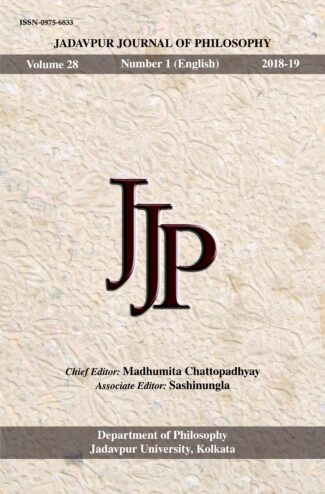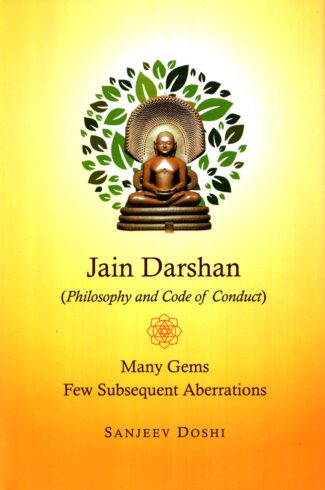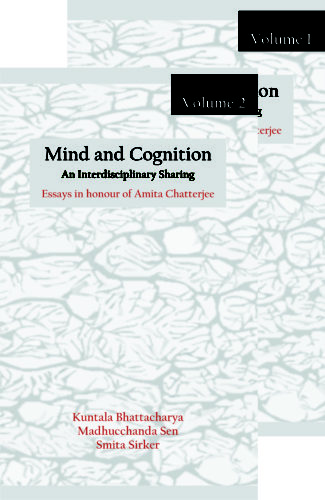Showing 25–36 of 76 results
The book investigates the bhakti beliefs and practices of the subaltern Kabirpanth community in comparison with the nirguna bhakti thought of their guru, the medieval iconoclastic bhakti saint Kabir. By doing so, the book attempts to investigate the Kabirpanthis’ attempt at dissent and submissiveness vis-a-vis the dominant Sanskritic Hindu tradition. This dual strategy of dissent and submissiveness is analysed through subaltern postcolonial lens as well as by employing social anthropological empirical research.
The book begins by making an analytical study of the medieval Bhakti movement and the nirguṇa bhakti teachings and practices of Kabir. Using postcolonial discursive tools such as postcolonial mimicry, ambivalence and hybridity, the author investigates how the bhakti beliefs and practices of the subaltern Kabirpanth community are elements of subversive and resistance stance against the dominant Sanskritic Hindu tradition.
This book is a must read for anyone interested in bhakti religion and movement and those who wish to analyse subaltern religion through postcolonial lens.

Jadavpur Journal of Philosophy is a refereed, bi-issue journal, in English (No. 1) and Bengali (No. 2) published annually by the Department of Philosophy, Jadavpur University, Kolkata, India. The journal volume in Bengali is titled Darsan Biksa. The journal is devoted to the publication of original scholarly papers in any branch of philosophy. Its objective is to encourage contributions from scholars, dealing with specific philosophical problems connected with their respective fields of specialization.
This book proposes to take up the question of Universal Causation to examine thoroughly as how far it is right to regard Brahman as the Universal Cause and how far strakra himself lent his support to each of the inter-conflicting schools of Vednta. This book should, therefore, benefit all who are devoted to the philosophic teachings of Advaita Vednta and its preceptors.
“Jain narrative as well as canonical literature indicates that the first tirthankara of Jains, Lord Adinath, was the founder of work and knowledge-based culture in India. He taught people how to live as communities and adhere to certain prearranged rules of coexistence and cooperation. He prescribed six different skills to be acquired by his subjects for worldly activities like (i) Asi (swordsmanship for protection), (ii) Masi (writing skills), (iii) Krishi (agriculture), (iv) Vidya (knowledge), (v) Vanijya (trade and commerce) and (vi) Shilp (crafts). These skills not only help in creating worldly wealth but also assist individuals and communities to live happily with overall prosperity. Following the path shown by Lord Adinath and subsequent tirthankaras. The Jain society from ancient times has been engaged in business activities with ahimsa (non-violence) as their guiding principle. Owing to this principle of ahimsa, we do find trends of the Jain community being engaged in commerce and trade. The historical trajectory of mercantile characteristics among the Jains continued till date and since India’s Independence, many renowned Jains have contributed to the development of India. This book documents the conceptual foundation of Jain tenets with reference to the Western approach toward business ethics; it also covers biographies of successful Jain entrepreneurs in the past and present. Apart from the details on the conceptual framework of Jain Business Ethics and Jain Business Engagements through the ages, it also contains various essays on Jain Values and Entrepreneurship. This book is an academic attempt to examine the Jain religion as an Eastern case study, which will be of interest to readers, who are looking for an alternative perspective in light of contemporary worries about global business and economic systems.”

The title will seem misleading to many, as it will conjure up in their mind, an idea that the book is about important Jain temples and events and will take you on a pictorial tour of the same. In fact, many well-wishers had advised me to change the title.
Darshan is a name given to all Indian religious philosophies, be it Hindu, Jain or Bauddha.
Western philosophies are not called Darshans. Why is it so, is explained in the Introductory chapter. And when you read it, you will feel proud of our Indian culture and the strides we have taken in the spiritual field.
The title will seem misleading to many, as it will conjure up in their mind, an idea that the book is about important Jain temples and events and will take you on a pictorial tour of the same. In fact, many well-wishers had advised me to change the title.
Darshan is a name given to all Indian religious philosophies, be it Hindu, Jain or Bauddha.
Western philosophies are not called Darshans. Why is it so, is explained in the Introductory chapter. And when you read it, you will feel proud of our Indian culture and the strides we have taken in the spiritual field.

The title will seem misleading to many, as it will conjure up in their mind, an idea that the book is about important Jain temples and events and will take you on a pictorial tour of the same. In fact, many well-wishers had advised me to change the title.
Darshan is a name given to all Indian religious philosophies, be it Hindu, Jain or Bauddha.
Western philosophies are not called Darshans. Why is it so, is explained in the Introductory chapter. And when you read it, you will feel proud of our Indian culture and the strides we have taken in the spiritual field.
The title will seem misleading to many, as it will conjure up in their mind, an idea that the book is about important Jain temples and events and will take you on a pictorial tour of the same. In fact, many well-wishers had advised me to change the title.
Darshan is a name given to all Indian religious philosophies, be it Hindu, Jain or Bauddha.
Western philosophies are not called Darshans. Why is it so, is explained in the Introductory chapter. And when you read it, you will feel proud of our Indian culture and the strides we have taken in the spiritual field.
The Krama School of the Trika Saivism of Kashmir, more familiar as Kalikrama in the contemporary parlance, has turned out to be the most crucial among the monistic Saiva traditions of medieval Kashmir after the Pratyabhijna school, a scenario people could hardly envisage six decades back when it first came to the notice of modern scholarship. The doctrine of Kalikrama, lit. sequential order of consciousness deities called Kalis, constitutes the most pivotal aspect of this school marked by a synchronous resonance between the esoteric/Tantric and cognitive/metaphysical undercurrents of the system.
In order to delve deeper into the doctrine of Kalikrama the present monograph does some loud thinking in three important areas: (a) the role of cognitivization in the ultimate realization; (b) the theoretical background of the mystical experience built around the consciousness deity(ies); and (c) the inconclusiveness of the hidden meaning posing an epistemological barrier in the study of an esoteric Tantric tradition. In all these areas one cannot miss the imprints of Abhinavagupta’s profound contribution. As such, the present study journeys into three directions: (1) a short genealogy of modern Krama studies; (2) the epistemology of the esoteric internalization embodied in the doctrine of Kalikrama; and (3) the role played by Abhinavagupta as its foremost architect. As such, the present study needs be construed as a small step towards discovering the intrinsic epistemological ethos of an esoteric Tantric tradition.

This volume, a tribute to Prof. Amita Chatterjee, features the views of forty scholars across the globe on major philosophical areas like Fusion Philosophy, Mind and Cognition, Mind and Perception, Mind and Language, Logic, and Indian Philosophy along with the autobiography of Chatterjee and her response to the contributions of those scholars.
“Knowing one’s tradition is important; but only when tradition is not presented as fossilised but as continuous with our present-day living. In most places we do not make enough effort to show the link between the classical philosophical thoughts and the contemporary world view. We need to show that we can still meaningfully interact with the classical philosophical systems”, writes Amita Chatterjee in her seminal essay “In Search of Counterpoints”. This volume is dedicated in her honour. “Knowing one’s tradition is important; but only when tradition is not presented as fossilised but as continuous with our present-day living. In most places we do not make enough effort to show the link between the classical philosophical thoughts and the contemporary world view. We need to show that we can still meaningfully interact with the classical philosophical systems”, writes Amita Chatterjee in her seminal essay “In Search of Counterpoints”. This volume is dedicated in her honour. Chatterjee belongs to a genre of philosophers, who have as part of their cultural heritage, like Raghunath Siromani and Immanuel Kant. Chatterjee, in addition to breaking cultural boundaries, desired to break boundaries that have kept professional disciplines apart. She deeply believes that there are certain basic questions that are questions not for any specific discipline. These questions, she thinks, could not be answered by remaining within one single discipline. It is no surprise that she was the founder of the first Cognitive Science Centre in India. Responding to her multifaceted academic talent, forty academics from diverse disciplines and from all over the world have contributed papers to this volume. The major areas of Chatterjee’s interest that feature in this volume are: (i) Fusion Philosophy, (ii) Mind and Cognition, (iii) Mind and Perception, (iv) Mind and Language, (v) Logic and Vagueness, (vi) Logic, (vii) Indian Philosophy, and (viii) Philosophy, Society and Popular Culture. Chatterjee’s intellectual autobiography and her responses to each of the papers are parts of this volume.
ISBN 9788124609514 (vol. 1)
ISBN 9788124609521 (vol. 2)
The crisis of the age inheres in this, that notwithstanding the century’s mind-numbing disasters, it persists in subscribing to propositions which have logically led to the atomization of the whole cloth of human experiencing, and being. Great indeed is the value which is placed on the procedure of analytic dismemberment. While the method has certainly been result-producing, materially, in its wake it has brought immense suffering – both physical and spiritual. The price paid for a lopsided advance is thirty major wars – with their toll of one hundred and thirty million lives, and the irreparable destruction of the natural environment. The time demands a reappraisal of the basic paradigms of human existence, but the hegemony of well-entrenched vested interests – material or intellectual – would seem to preclude this.
The “advanced” people among the mankind of the day become suicidally specialized. For, if the mechanical model of thought has been of advantage in man’s preceding unfolding, the same, what may be called the “survival” paradigm, now creates dangerous dualities, binary oppositions (you–me, body–mind, East–West, etc). The model has outlived its usefulness merely enforcing dormancy on a major part of the human brain.
It behoves mankind to choose wisely right now – since parallel to the socio-economic, scientific and technological revolutions there has got to be the overdue radical psychic transformation. The first step towards clearing the fateful crisis would therefore be to be aware and end the hold of the linear, causal, mechanical thought orientation over the intellectual culture of the times.
Delving deep into the epistemological cum ontological causation of the emergency confronting the being and becoming of man, this volume provokes the thoughtful lay reader to a serious engagement with his or her self.

The book recounts the journey of Vivek ji and numerous others during the years 2022-23 along the revered banks of the Narmada river. The book is not just a travelogue of the author’s journey along the banks of the river, but also a documentation of the numerous ancient teerthas that are scattered along the holy banks of Narmada, which have been mostly forgotten by everyone. The teerthas are the starting point of the Narmada Parikrama, playing a crucial role in shaping this tradition. Vivek ji’s Narmada parikrama was a journey undertaken with the purpose of immersing oneself in the spiritual landscapes of the sacred Narmada river. However, it was the parikrama that ultimately uncovered and drew attention to the Teerthas.
The book recounts the journey of Vivek ji and numerous others during the years 2022-23 along the revered banks of the Narmada river. The book is not just a travelogue of the author’s journey along the banks of the river, but also a documentation of the numerous ancient teerthas that are scattered along the holy banks of Narmada, which have been mostly forgotten by everyone. The teerthas are the starting point of the Narmada Parikrama, playing a crucial role in shaping this tradition. Vivek ji’s Narmada parikrama was a journey undertaken with the purpose of immersing oneself in the spiritual landscapes of the sacred Narmada river. However, it was the parikrama that ultimately uncovered and drew attention to the Teerthas.

This bilingual volume talks about the varied problems of philosophy in terms of definition, philosophical thinking, and the relation between thought and language. Problems that confront to a reflective mind need to be analysed, clarified and resolved. The book fulfils that task.
“Nature of Philosophy is a bilingual volume in English and Hindi. It talks about the varied problems of philosophy in terms of definition, philosophical thinking, and the relation between philosophy and language. Akin to any other discipline, in philosophy too, problems concerning it need to be analysed, clarified and resolved for a proper understanding and, it is the ultimate goal of this book. Herein, problems are made clear by analysis, questioning and critical method. The clarity thus achieved prompts us for philosophical reflection to the extent of removal of the problem and a discriminate understanding of the concept. It emphatically states that since philosophical problems are the objects of reflection, philosophical reflections aim at conceptual clarity by analysis, interpretation and wisdom. The question of any sort of risk against philosophy does not hold any merit. It is because philosophy fulfils human aspirations and truth of reasoning to confront with and reflect on problems to remove them. This book offers a thumbnail sketch of the varied problems of philosophy and proffers solutions to them in an efficacious manner.”
“The philosophies in India evolved in the process of mutual rebuttal and confirmation. The Carvaka philosophy is very unique and well-marked among Indian philosophies as it is the only philosophy in India which corroborates materialism. The twenty-first century is the century of materialism. This philosophy known as Lokayata as well as Anviksiki is a logical system. In order to qualify to be a logical system it is necessary that this philosophy refutes the concepts of other philosophies and establishes its own concepts both on logical grounds. The philosophies such as Nyaya, Vaisesika, Samkhya, Jaina and Bauddha do the same; they refute the position of other philosophies on logical grounds and establish their own philosophy on the logical basis. But we observe this deficiency in the Carvaka philosophy as this philosophy is not developed in tune with the development of other philosophies for whatsoever reasons. Everywhere this philosophy appears only as a purvapaksa not siddhanta paksa. In this book there are redressals of the criticism of Carvaka philosophy by the celebrated philosophers like Dharmakirti, Santaraksita, Kamalasila, Udayanacarya and Visvanatha Nyayapancanana as well as their rebuttal from the Carvaka point of view. This book is a reaffirmation of the Carvaka philosophy on the basis of Carvaka concepts and logical grounds. This is an invitation to the philosophers for a dialogue. “
This book represents the philosophy of language in Navya-Nyaya, based upon an analysis of the “Verbal Suffix Chapter” (Akhyatavada) of Gangesha’s Tattvacintamani. Since this chapter elaborates what kind of verbal understanding is generated and discusses related issues, the book demonstrates the main features of that philosophy of language and serves as a good introduction to that. The analysis mainly deals with Gangesha, but in some cases it refers to Raghunatha. Since the book is an attempt to pursue philological exactness and philosophical analysis, it is hoped to interest not only Sanskrit scholars, but also philosophers in general.
The book consists of four lectures. Lecture I clarifies Gangesha’s view of the meaning of the suffixes of a finite verb, which (meaning) is greatly disputed among the Navya-Nyaya philosophers, the Mimamsa philosophers, and the Grammarians. Lecture II investigates how Gangesha determines the meaning of words and illustrates that his method bears upon ontological categories of Vaisheshika. Lecture III deals with Gangesha’s “Five Definitions of Invariable Concomitance Section” (Vyaptipancaka) and elucidates the relation between meaning and the logical structure of the definitions. The lecture also provides diagrams as a tool to represent the structure. Lecture IV explains the realistic standpoint of Navya-Nyaya by clarifying the concept of the counterpositive (pratiyogin) of absence (abhava), or a thing whose existence is negated, focusing on empty terms or non-factual expressions such as “a round triangle”, “the present King of France”, “a rabbit’s horn”, and so forth. The lecture delineates how Udayana, Gangesha, and Raghunatha observed and, as the time passed, did realism thoroughly in language analysis.
| There are no products |